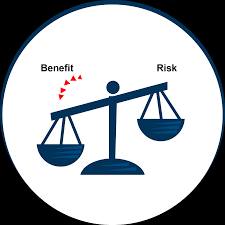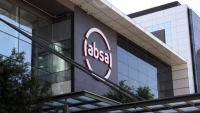[dropcap]L[/dropcap]iving is not a safe situation! Yes! You read it correct… living is not a safe situation. Have you ever given this a serious and sincere thought? If not… take a moment and reflect…
On a daily basis, we intentionally and unintentionally step into situations that expose us to risks- starting from the fact that waking up in itself is not a guarantee… then there are people who do wake up but may not successfully get up from their bed… the walk to and fro your bathroom itself has potential risks of you slipping and falling… a fire when you are preparing your breakfast… being run over by a motorist as you step out of your home… slipping over a banana peel that was thrown onto the road where we walk… risk of driving our car as well as being a passenger on the bus to work… the threat of attacks from terrorists lurking around us… and as the sun sets… what is the guarantee we will get home safe and find all our family members safe from their own respective day? At school as well as at offices… risks surround us from all sides.
We all engage in risky activities all day, every day. Now, if you read the above again, you realise some of these risks are acceptable- especially if the probability of something harmful happening is small or distant in time as well as the possible benefits from engaging in them are stronger [try telling your manager you will henceforth not come to work, because of these risks!] Suddenly we will put aside these risks or at least, decide to cope with them, yet, we may also decide not to engage in some of them where the probability of harm is high or is serious and the fact we are not in direct control over the same.
It is similar in the medical field as well- there may not always be a guarantee that the surgery we are to undergo will be successful or that the medicines prescribed to help treat or cure our ailment causes more harm! Yes… medicines are double-edged swords- they are meant to do good but also have a potential to cause harm. We routinely call these as ‘side effects’- scientifically known as Adverse Effects of medicines.
It may be a simple rash on the skin, an upset stomach, dizziness or more serious ones like those that cause damage to your kidney or liver as well as make you feel more ill than you were before starting the medicines.
No medicine can be classified to be 100% safe- every medicine has the potential to cause harm- sometimes due to its own chemical composition (chemistry- ‘pharmacodynamic factors’) or your own biologic composition (biology- ‘pharmacokinetic factors’) as well as the conditions surrounding the treatment itself in terms of the dose prescribed, frequency of taking the medicine, drug-drug and drug-food interactions.
All these parameters have to be considered before any medicine is prescribed by the doctor, has to be considered when the medicine is dispensed by the pharmacist and you, as the patient, need to play your part and take them as guided. Furthermore, it is also your important duty to be part of your own treatment and its expected outcome- you have to monitor these adverse effects, some which are expected based on the pharmacodynamic- and pharmacokinetic- factors yet some that are absolutely bizarre and never expected. It is of utmost importance to report these effects to your doctor- this feedback is crucial for your doctor to understand how you have been responding to the medicines prescribed as well as evaluate the next best option in your treatment and chose the best path to your recovery and healing. The more common adverse effects are often already identified from the initial clinical trial-phases of the drug but the not-so-common ones, especially the rare ones, will only be identified once the medicine is used broadly by many patients and the feedback of the adverse effects provided from the respective patient-doctor interactions.
The patients and doctors thus have the important role of not just identifying the adverse effects of the medicines but to document and report these to the regulator or at least, the pharmaceutical company that manufactured the medicine. Each report is vital to understand the ever-changing dynamics of the benefit-harm profile of the medicine and, in turn, help the doctor better manage his next patient and understand that patient’s own unique response to the same medicine(s). As much as reporting of the rare adverse effects is important to identify safety signals, reporting of the expected adverse effects helps to better characterise the frequency of these common effects within a given population and helps to lay the principles of ‘good pharmacovigilance practice’.
A report should be made via a simple phone call to the National Medicines Regulatory Authority (NMRA), or through their e-mail address, on their website as well as online via the various applications (‘apps’) created for this
As the umbrella organisation of the Pharmaceutical Industry in Kenya, the Kenya Association of Pharmaceutical Industry (KAPI) is actively complementing Patient Safety-related efforts of the NMRAs in the East Africa Community (EAC) region and at the same time leading efforts towards alignment of globally available best practices and standards.
As the Lead of the Pharmacovigilance Committee within KAPI, mine is to encourage all- you the HealthCare Professional as well as you, the Patient- to recognise that risks associated with the use of medicines surround us in all ways when we are alive- the important issue being to learn of them, manage them and improve the system for the early identification of these risks and reporting them in a timely and appropriate manner to the Authorities in order to reduce them in the next patient- this is (one key area of) Pharmacovigilance- the science and art of collecting, monitoring, researching and evaluating data on adverse effects of medicines with the view to identify new information and prevent harm to patients.
Read: Kenyans can’t help but live the high life
Simply put, Pharmacovigilance is enhancing Patient Safety while using their medicines. Let us together be vigilant and play our respective roles.










1 Comment